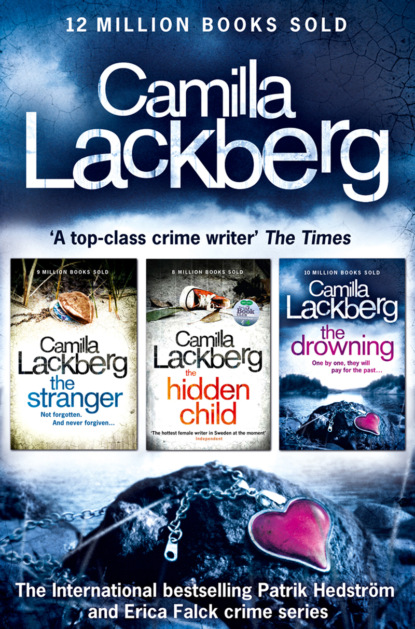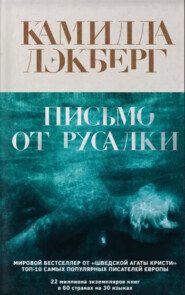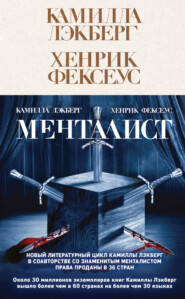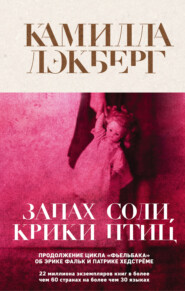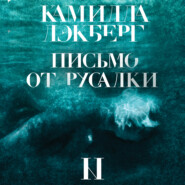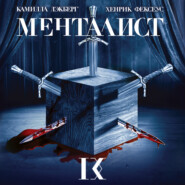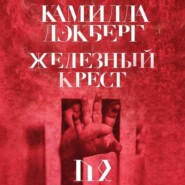По всем вопросам обращайтесь на: info@litportal.ru
(©) 2003-2024.
✖
Camilla Lackberg Crime Thrillers 4-6: The Stranger, The Hidden Child, The Drowning
Автор
Год написания книги
2018
Настройки чтения
Размер шрифта
Высота строк
Поля
Eva thought about it, but then slowly shook her head. ‘No, I don’t think so. I don’t recognize the name.’
‘The only apparent connection we’ve found is that Marit didn’t drink alcohol either, yet she had a great quantity of alcohol in her blood when she died. Rasmus wasn’t a member of some temperance society, was he?’ Martin asked.
Once again Eva shook her head. ‘No, nothing like that.’ She hesitated for a moment, then said, ‘No, he didn’t belong to any group like that.’
‘Okay,’ said Patrik. ‘Thank you for your help, and we’ll be in touch. I’m sure we’ll have more questions.’
‘Call me in the evening if you like. I’m always here.’
Patrik had to resist the urge to take a few steps forward and give the little woman with the sad squirrel-brown eyes a big hug.
Just as they were about to go out the front door, she stopped them. ‘Wait, there’s one more thing that might be of interest to you.’ She turned on her heel and went into her bedroom. After a moment she returned. ‘This is Rasmus’s knapsack. He always had it with him. He had it when he …’ Her voice broke. ‘I couldn’t get myself to take it out of the bag it was in when I got it back from the police.’
Eva handed Patrik the transparent plastic bag containing the knapsack. ‘Go ahead and take it with you. Maybe it contains something of interest.’
When the door closed behind them, Patrik stood with the bag in his hand. He looked at the knapsack. He recognized it from the pictures that were taken at the site after Rasmus died. What hadn’t been visible in the photos, which were taken in the evening, was that it was covered with dark spots. Patrik realized that it was dried blood. Rasmus’s blood.
She leafed impatiently through the book as she talked on her mobile.
‘Sure, I have it here.
‘But what are you willing to pay?
‘That’s all?’ She frowned in disappointment.
‘But this is good stuff. You could run a whole series.
‘No, then I’ll call Hänt instead.
‘Okay, ten thousand will work. I can deliver it tomorrow. But the money has to be in my account by then, otherwise the deal’s off.’
Pleased, Tina flipped the lid closed on her mobile. She walked away from the community centre and sat down on a rock to read. She had never got to know Barbie. Had never wanted to either, for that matter. But it felt a bit weird to be getting inside her head after the fact. She turned pages in the diary, reading greedily. She could already picture how the excerpts were going to look in the evening paper, with the best bits underlined. What dismayed her most about the diary was that Barbie wasn’t as stupid as Tina had thought. Her thoughts and observations were well formulated and occasionally even rather witty. But Tina frowned when she got to the part that had made her decide to sell the stuff to the evening papers. She was going to tear out this page first, of course.
It said, ‘I listened today when Tina performed her song. She’s going to sing it tonight at the community centre. Poor Tina. She has no idea how terrible she sounds. I wonder how that could be; how can something that sounds so bad on the outside sound so good on the inside to the person singing it? Because that’s what the whole Idol concept is based on, so maybe it shouldn’t seem so odd. Clearly it was her mother who put the idea in her head that she could be a singer. Tina’s mum must have been tone-deaf. That’s the only explanation I can think of. But I don’t have the heart to tell Tina. So I play along, even though I basically think I’m doing her a disservice. I talk to her about her music career, all the success she’s going to have, all the concerts, all the tours. But I feel like a shit, because I’m lying to her face. Poor Tina.’
Angrily Tina ripped out the page and tore it into tiny bits. That fucking bitch! If she’d ever felt the least bit sorry that Barbie died, she certainly didn’t now. That bitch had got what she deserved! She didn’t know what the hell she was talking about. Tina ground the bits of paper into the gravel with her heel.
Then she turned to the part that had surprised her. On one of the pages, which was written soon after they’d arrived in Tanum, Barbie had written:
‘There’s something familiar about him. I don’t know what it is. It feels like my brain is running at high speed trying to find something that lies buried there. But I just don’t know what it could be. Something about the way he moves. Something about the way he talks. I know I’ve seen it before, but I don’t know where. All I know is that I feel an uneasiness that keeps getting worse and worse. It’s like something is turning over in my stomach and I can’t make it stop. Not until I know.
‘I’ve thought so much about Pappa lately. I don’t know why. I thought I’d closed off that part of my memory long ago. It hurts too much to remember. Hurts too much to see his smile, hear that rumbling voice, and feel his fingers on my forehead when he would smooth back my hair to kiss me good night. Every night. Always a kiss on the forehead and one on the tip of my nose. I remember that now. For the first time in years I can remember it. And I see myself, sort of from the outside. I see what I’ve done to myself, what I’ve let other people do to me. I can see Pappa’s eyes on me now. I can see his confusion, his disappointment. His Lillemor is so far away now. She’s hidden somewhere behind all this anxiety and peroxide and terror and silicone. I put on a masquerade costume that I could hide behind. So that Pappa’s eyes couldn’t find me, couldn’t look at me. It hurt too much to remember the way he looked at me. The way it was just me and him for so many years. How safe and warm it was. The only way to survive the cold that came afterwards was to forget the warmth. But now I can feel it again. I remember. I feel it. And something is calling to me. Pappa is trying to tell me something. If I only knew what. But it has something to do with him. That much I know.’
Tina read through that section several times. What in the world was Barbie talking about? Had she recognized someone here in Tanum? Tina’s curiosity was aroused. She tied her long dark hair into a ponytail draped over one shoulder. With the diary on her lap she lit a cigarette and took a couple of pleasurable drags before she continued paging through the book. Except for the part she’d just read, she didn’t find much more of interest. A few accounts of how Barbie had viewed the other cast members, a few thoughts about the future, the same boredom that they were all starting to feel about daily life here. For an instant Tina thought that the police might be interested in the diary. But then she saw the bits from the page she’d torn out and rejected that idea. She would enjoy seeing Barbie’s private thoughts in big black headlines in the newspapers. It served her right, that lying, hypocritical bitch.
Out of the corner of her eye she saw Uffe coming towards her. No doubt he wanted to bum a cigarette. She hurried to stuff the diary inside her jacket and put on a nonchalant expression. This was her discovery, and she had no intention of sharing it.
6 (#ulink_93892e61-3ef9-5527-bc03-b7c4e9833a3d)
The longing for the world outside only grew stronger. Sometimes she let them run about on the grass, but only for short periods. And always with an anxious look in her eyes that made him keep scouting for the monsters that she said were hiding out there, the monsters that only she could protect them from.
But despite the terror it was wonderful. Being able to feel the sunshine warming their skin and the way the grass tickled the soles of their feet. They used to go wild, he and sister, and sometimes even she couldn’t help laughing at the way they scampered about. Once she had played tag with them and rolled around with them on the lawn. At that moment he had felt pure and genuine happiness. But the sound of a car in the distance had made her stand up and, with fear in her eyes, yell at them to run inside. They had to run fast! And chased by the nameless terror they had rushed to the door and up to their room. She had run after them and locked all the doors in the house. Then they had huddled in the room with their arms round each other, quivering in a heap on the floor. She had promised them over and over again that nobody was going to take them away. That nobody would ever be allowed to hurt them again.
He had believed her. He was grateful that she was protecting them, like a last outpost against all those who wanted to harm them. But at the same time he couldn’t help longing to go back outside. To the sunshine. To the grass under his feet. To freedom.
Gösta sneaked a look at Hanna as they walked towards Kerstin’s building. He realized that in a surprisingly short time he had become enchanted with Hanna Kruse. Not in some dirty old man way; it was more of a fatherly feeling. She also reminded him a great deal of his late wife when she was young. She’d had the same blonde, blue-eyed looks, and just like Hanna she was petite but strong. Yet it was obvious that talking to the next of kin was not one of Hanna’s favourite assignments. Out of the corner of his eye he could see her jaws clenched, and he had to check himself from putting a reassuring hand on her shoulder. Something told him that she wouldn’t appreciate it. He might even find himself on the receiving end of a right jab.
They had phoned in advance to tell Kerstin they were coming, and when she opened the door Gösta saw that she’d taken a quick shower before they arrived. Her face was bare of makeup and showed the same resignation he’d seen so many times before. It was an expression that appeared on the faces of loved ones when the worst shock had subsided, making the grief more naked and acute. It was only now that the finality of what had happened had sunk into their brain.
‘Come in,’ Kerstin said, and he noticed that her complexion had the slightly greenish pallor of someone who had been indoors too long.
Yet Hanna looked resolute as they sat down at the table in the kitchen. The flat was clean and neat but smelled a bit stuffy, which confirmed Gösta’s impression that Kerstin apparently hadn’t been out since Marit died. He wondered how she got food, whether she had somebody to shop for groceries. As if in direct reply to his question, she opened the fridge to take out milk for the coffee, and a quick look told him that it was well stocked. She also set out some buns that looked like they’d come from the bakery, so someone was apparently helping her with her shopping.
‘Do we know anything more?’ she said wearily when she sat down. It felt as though she was asking the question simply because she should, not because she cared. That was another effect of facing cold reality. She had realized that Marit was gone for ever. That awareness could overshadow for a while the longing for an answer, an explanation. Although this varied a lot, as Gösta had learned over almost forty years of service. For some loved ones the search for an explanation became more important than anything else, in most cases however it was merely one way to postpone acknowledging and accepting the facts. He had seen relatives who lived in denial for many years, sometimes even till their own journey to the grave. Kerstin was not one of them. She had faced Marit’s death, and that encounter seemed to have sucked all the energy out of her. As if in slow motion she poured the coffee. ‘Pardon me, I think one of you might have wanted tea instead?’ she said in confusion.
Gösta and Hanna shook their heads. They sat quietly for a minute before Gösta finally answered the question that Kerstin had asked.
‘Yes, we’ve received a few leads that we’re following up on.’ He stopped, unsure how much to tell her. Hanna took over.
‘We found some information that points to a connection with another murder. In Borås.’
‘Borås?’ Kerstin echoed, and for the first time since they arrived they saw a spark of interest in her eyes. ‘But … I don’t understand. Borås?’
‘Yes, we were surprised too,’ said Gösta, reaching for a bun. ‘And that’s why we’re here. To see if there’s any connection that you know of between Marit and the victim in Borås.’
‘What … who?’ Kerstin’s eyes shifted. She tucked her hair behind her right ear.
‘It was a man in his thirties. Rasmus Olsson was his name. He died three and a half years ago.’
‘But didn’t they ever solve the case?’
Gösta glanced at Hanna. ‘No, the police there decided that it was suicide. There were various indications that …’ He threw out his hands.
‘But Marit never lived in Borås. Not as far as I knew, at least. Although you might want to check with Ola.’
‘Naturally we’ll have a chat with Ola too,’ said Hanna. ‘But there’s no possible connection that you know of? One of the similarities in Rasmus’s and Marit’s death was that …’ she hesitated, ‘at the time of their death they had been forced to drink large quantities of alcohol, although they never drank. Marit wasn’t a member of any temperance society, was she? Or a member of some religious congregation?’
Kerstin laughed, and her smile gave her face a hint of colour. ‘Marit? Religious? No, I would have known about it if she was. We always went to the early service on Christmas Day, but that was probably the only time Marit ever set foot in the church here in Fjällbacka. She was like me. Not actively religious in any way, yet she retained some of her childhood faith, a conviction that there was something greater. I hope she did, at least, now more than ever,’ she added quietly.
Neither Hanna nor Gösta said a word. Hanna looked down at the table and Gösta thought he saw her eyes glistening. He understood. Even though it had been years since he had cried in the presence of the grief-stricken. But they were here to do a job, so he continued cautiously, ‘And the name Rasmus Olsson doesn’t ring a bell?’
Kerstin shook her head and warmed her hands on her coffee cup. ‘No, I’ve never heard that name before.’
‘Then we won’t take up any more of your time. If you think of anything, please call us.’ Gösta got up and Hanna followed suit. She looked relieved.
‘I’ll be in touch in any case,’ said Kerstin, remaining seated.
In the doorway Gösta couldn’t resist turning round and telling her, ‘Go out and take a walk, Kerstin. It’s such nice weather. And you need to get some fresh air.’





